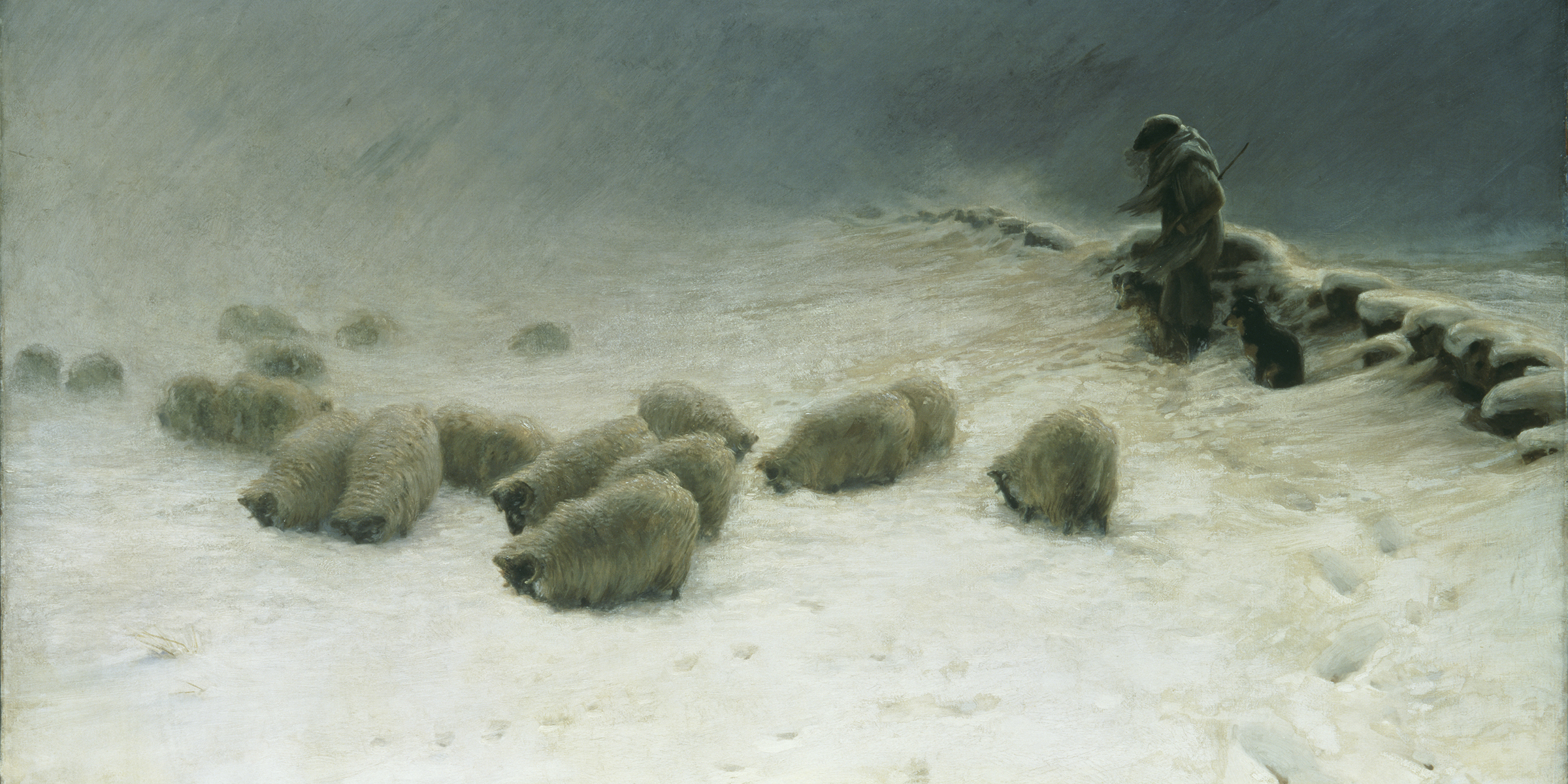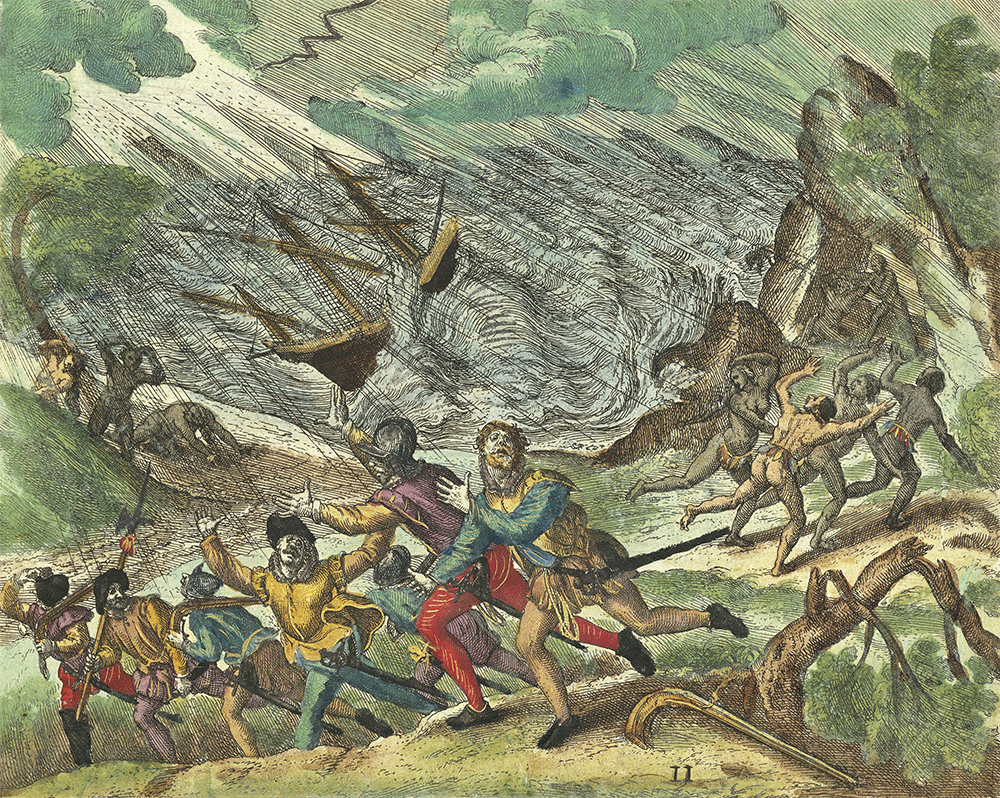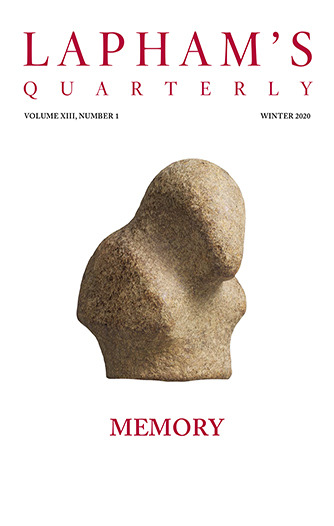The earth is our existence, and our body is attached to the earth.
—Daulat Qazi, 1650Weapons of Mass Destruction
George Perkins Marsh on our derangement of nature.
Man has too long forgotten that the earth was given to him for usufruct alone, not for consumption, still less for profligate waste. Nature has provided against the absolute destruction of any of her elementary matter, the raw material of her works; the thunderbolt and the tornado, the most convulsive throes of even the volcano and the earthquake, being only phenomena of decomposition and recomposition.
But she has left it within the power of man irreparably to derange the combinations of inorganic matter and of organic life, which through the night of eons she had been proportioning and balancing, to prepare the earth for his habitation, when, in the fullness of time, his Creator should call him forth to enter into its possession.
Apart from the hostile influence of man, the organic and the inorganic world are bound together by such mutual relations and adaptations as secure, if not the absolute permanence and equilibrium of both, a long continuance of the established conditions of each at any given time and place, or at least a very slow and gradual succession of changes in those conditions. But man is everywhere a disturbing agent. Wherever he plants his foot, the harmonies of nature are turned to discords. The proportions and accommodations which ensured the stability of existing arrangements are overthrown. Indigenous vegetable and animal species are extirpated and supplanted by others of foreign origin, spontaneous production is forbidden or restricted, and the face of the earth is either laid bare or covered with a new and reluctant growth of vegetable forms, and with alien tribes of animal life. These intentional changes and substitutions constitute, indeed, great revolutions; but vast as is their magnitude and importance, they are insignificant in comparison with the contingent and unsought results which have flowed from them.
Purely untutored humanity, it is true, interferes comparatively little with the arrangements of nature, and the destructive agency of man becomes more and more energetic and unsparing as he advances in civilization, until the impoverishment with which his exhaustion of the natural resources of the soil is threatening him at last awakens him to the necessity of preserving what is left, if not of restoring what has been wantonly wasted. The wandering savage grows no cultivated vegetable, fells no forest, and extirpates no useful plant, no noxious weed. If his skill in the chase enables him to entrap numbers of the animals on which he feeds, he compensates this loss by destroying also the lion, the tiger, the wolf, the otter, the seal, and the eagle, thus indirectly protecting the feebler quadrupeds and fish and fowls, which would otherwise become the booty of beasts and birds of prey. But with stationary life, or rather with the pastoral state, man at once commences an almost indiscriminate warfare upon all the forms of animal and vegetable existence around him, and as he advances in civilization, he gradually eradicates or transforms every spontaneous product of the soil he occupies.

The Joyless Winter Day (detail), by Joseph Farquharson, 1883. © Tate, London / Art Resource, NY.
It has been maintained by authorities as high as any known to modern science that the action of man upon nature, though greater in degree, does not differ in kind from that of wild animals. It appears to me to differ in essential character, because though it is often followed by unforeseen and undesired results, yet it is nevertheless guided by a self-conscious and intelligent will aiming as often at secondary and remote as at immediate objects. The wild animal, on the other hand, acts instinctively and, so far as we are able to perceive, always with a view to single and direct purposes. The backwoodsman and the beaver alike fell trees; the man that he may convert the forest into an olive grove that will mature its fruit only for a succeeding generation, the beaver that he may feed upon their bark or use them in the construction of his habitation. Human differs from brute action, too, in its influence upon the material world, because it is not controlled by natural compensations and balances. Natural arrangements, once disturbed by man, are not restored until he retires from the field and leaves free scope to spontaneous recuperative energies; the wounds he inflicts upon the material creation are not healed until he withdraws the arm that gave the blow. On the other hand, I am not aware of any evidence that wild animals have ever destroyed the smallest forest, extirpated any organic species, or modified its natural character, occasioned any permanent change of terrestrial surface, or produced any disturbance of physical conditions which nature has not of herself repaired without the expulsion of the animal that had caused it.
The form of geographical surface, and very probably the climate of a given country, depend much on the character of the vegetable life belonging to it. Man has by domestication greatly changed the habits and properties of the plants he rears; he has by voluntary selection immensely modified the forms and qualities of the animated creatures that serve him; and he has at the same time completely rooted out many forms of both vegetable and animal being. What is there in the influence of brute life that corresponds to this? We have no reason to believe that in that portion of the American continent which, though peopled by many tribes of quadruped and fowl, remained uninhabited by man, or only thinly occupied by purely savage tribes, any sensible geographical change had occurred within twenty centuries before the epoch of discovery and colonization, while during the same period man had changed millions of square miles in the fairest and most fertile regions of the Old World into the barrenest deserts.
The ravages committed by man subvert the relations and destroy the balance which nature had established between her organized and her inorganic creations; and she avenges herself upon the intruder by letting loose upon her defaced provinces destructive energies hitherto kept in check by organic forces destined to be his best auxiliaries, but which he has unwisely dispersed and driven from the field of action. When the forest is gone, the great reservoir of moisture stored up in its vegetable mold is evaporated and returns only in deluges of rain to wash away the parched dust into which that mold has been converted. The well-wooded and humid hills are turned to ridges of dry rock, which encumbers the low grounds and chokes the watercourses with its debris, and—except in countries favored with an equable distribution of rain through the seasons and a moderate and regular inclination of surface—the whole earth, unless rescued by human art from the physical degradation to which it tends, becomes an assemblage of bald mountains, of barren, turfless hills, and of swampy and malarious plains. There are parts of Asia Minor, of northern Africa, of Greece, and even of Alpine Europe, where the operation of causes set in action by man has brought the face of the earth to a desolation almost as complete as that of the moon; and though within that brief space of time which we call “the historical period” they are known to have been covered with luxuriant woods, verdant pastures, and fertile meadows, they are now too far deteriorated to be reclaimable by man, nor can they become again fitted for human use, except through great geological changes, or other mysterious influences or agencies of which we have no present knowledge, and over which we have no prospective control. The earth is fast becoming an unfit home for its noblest inhabitant, and another era of equal human crime and human improvidence, and of like duration with that through which traces of that crime and that improvidence extend, would reduce it to such a condition of impoverished productiveness, of shattered surface, of climatic excess, as to threaten the depravation, barbarism, and perhaps even extinction of the species.
True, there is a partial reverse to this picture. On narrow theaters, new forests have been planted; inundations of flowing streams restrained by heavy walls of masonry and other constructions; torrents compelled to aid, by depositing the slime with which they are charged, in filling up lowlands and raising the level of morasses which their own overflows had created; ground submerged by the encroachments of the ocean, or exposed to be covered by its tides, has been rescued from its dominion by diking; swamps and even lakes have been drained, and their beds brought within the domain of agricultural industry; drifting coast dunes have been checked and made productive by plantation; seas and inland waters have been repeopled with fish, and even the sands of the Sahara have been fertilized by artesian fountains. These achievements are more glorious than the proudest triumphs of war, but thus far they give but faint hope that we shall yet make full atonement for our spendthrift waste of the bounties of nature.

A Terrible and Unheard-of Storm, engraving from Theodor de Bry’s Grand Voyages, 1594. © bpk Bildagentur / Kunstbibliothek, Staatliche Museen, Berlin / Knud Petersen / Art Resource, NY.
It is, on the one hand, rash and unphilosophical to attempt to set limits to the ultimate power of man over inorganic nature, and it is unprofitable, on the other, to speculate on what may be accomplished by the discovery of now unknown and unimagined natural forces, or even by the invention of new arts and new processes. But since we have seen aerostation, the motive power of elastic vapors, the wonders of modern telegraphy, the destructive explosiveness of gunpowder, and even of a substance so harmless, unresisting, and inert as cotton, nothing in the way of mechanical achievement seems impossible, and it is hard to restrain the imagination from wandering forward a couple of generations to an epoch when our descendants shall have advanced as far beyond us in physical conquest as we have marched beyond the trophies erected by our grandfathers.
I must therefore be understood to mean only that no agencies now known to man and directed by him seem adequate to the reducing of great Alpine precipices to such slopes as would enable them to support a vegetable clothing, or to the covering of large extents of denuded rock with earth and planting upon them a forest growth. But among the mysteries which science is yet to reveal, there may be still undiscovered methods of accomplishing even grander wonders than these. Mechanical philosophers have suggested the possibility of accumulating and treasuring up for human use some of the greater natural forces, which the action of the elements puts forth with such astonishing energy. Could we gather and bind and make subservient to our control the power which a West Indian hurricane exerts through a small area in one continuous blast, or the momentum expended by the waves, in a tempestuous winter, upon the breakwater at Cherbourg, or the lifting power of the tide, for a month, at the head of the Bay of Fundy, or the pressure of a square mile of seawater at the depth of five thousand fathoms, or a moment of the might of an earthquake or a volcano, our age—which moves no mountains and casts them into the sea by faith alone—might hope to scarp the rugged walls of the Alps and Pyrenees and Mount Taurus, robe them once more in a vegetation as rich as that of their pristine woods, and turn their wasting torrents into refreshing streams.
Nature never jests.
—Albrecht von Haller, 1751Could this old world, which man has overthrown, be rebuilt, could human cunning rescue its wasted hillsides and its deserted plains from solitude or mere nomad occupation, from barrenness, from nakedness, and from insalubrity, and restore the ancient fertility and healthfulness of the Etruscan seacoast, the Campagna and the Pontine marshes, of Calabria, of Sicily, of the Peloponnese and insular and continental Greece, of Asia Minor, of the slopes of Lebanon and Hermon, of Palestine, of the Syrian Desert, of Mesopotamia and the delta of the Euphrates, of the Cyrenaica, of Africa proper, Numidia, and Mauritania, the thronging millions of Europe might still find room on the eastern continent, and the main current of emigration be turned toward the rising instead of the setting sun.
But changes like these must await great political and moral revolutions in the governments and peoples by whom those regions are now possessed, a command of pecuniary and of mechanical means not at present enjoyed by those nations, and a more advanced and generally diffused knowledge of the processes by which the amelioration of soil and climate is possible than now anywhere exists. Until such circumstances shall conspire to favor the work of geographical regeneration, the countries I have mentioned, with here and there a local exception, will continue to sink into yet deeper desolation.

George Perkins Marsh
From Man and Nature. “For fuel to warm our bodies and seethe our pottage,” writes Marsh elsewhere in this work, “we are, even now, breaking up the floor and wainscoting and doors and window frames of our dwelling.” Marsh served four terms in Congress as a Whig representative from Vermont, advocating for the preservation and care of natural resources. According to author Wallace Stegner, “Marsh’s warnings went unheeded except by a concerned few, upper-class bird-watchers probably.”
